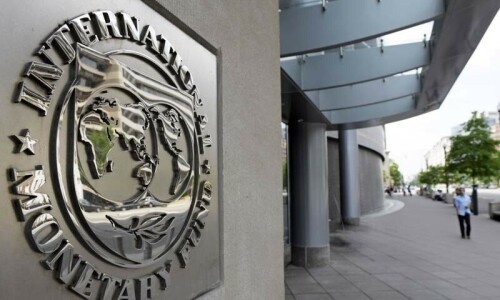PTI counsel advised to file reference with NAB to reopen Hudaibiya Paper Mills case
Justice Asif Saeed Khosa, during a hearing of the Panamagate case on Monday, advised Pakistan Tehreek-e-Insaf (PTI) counsel Naeem Bokhari to file a reference with National Accountability Bureau (NAB) Chairman Qamar Zaman Chaudhry to reopen the Hudaibiya Paper Mills case.
The judge was presiding over a five-member bench of the apex court when he said, "We can call the chairman of NAB and ask him why he did not fulfil his responsibilities."
Justice Khosa was referring to a case in which now Finance Minister Ishaq Dar had submitted a handwritten statement to a magistrate in 2000 alleging that the Sharif brothers had used the Hudaibiyah Paper Mills as a cover for money laundering during the late 90s.
In 2014, an accountability court judge had rejected an application filed by NAB requesting the reopening of the Hudaibiya Paper Mills and Raiwind Assets references.
Read more: Sharifs used paper mill to whiten money, Dar told court in 2000
As per a NAB investigation report on the Hudaibiya Paper Mills reference in 2014, the Sharif family had allegedly deposited ill-gotten money in bank accounts opened in other people’s names and used it to pay off loans of their companies.
The court observed that NAB had not given proper opportunity to the Sharif family to join the investigations and justify their assets.
Read more: Sharif cleared in two corruption references
Justice Khosa also admonished Bokhari for steering the focus of the case away from the London flats towards the Hudaibiya Paper Mills.
"First in the case you spoke about the London flats. Now, you have jumped towards the confessional statement of Ishaq Dar," he noted.
Justice Ejaz ul Hasan, too, pointed out to the counsel that his arguments had failed to make clear whether or not Maryam Nawaz is a dependent of her father.
Bokhari told the court that the London flats were bought under Maryam Nawaz's name between 1993 to 1996. He added that at the time of the transaction, Maryam Nawaz was underage and had no source of income.
The advocate alleged that Maryam Nawaz was made the beneficiary as a smokescreen, whereas the PM is the real owner of the flats.
He told the apex court that, in a similar manner, the PM set up mills in Jeddah and Dubai by using benami transactions.
Justice Khosa pointed out that the burden of proof lies with the PTI since they claim to have the evidence. He added that it was the party's responsibility to show how the companies were bought, who made them and where the money came from.
Justice Khosa told Bokhari that if the Supreme Court sends the references regarding the Hudaibiya Paper Mills case to NAB, it will no longer be able to hold hearings on the Panamagate case in accordance with Article 184.
He further advised Bokhari that the responsibility was upon him to either separate the two cases or ensure that they are heard simultaneously.
Justice Ejaz ul Hasan, however, advised the advocate that if the two cases are joined, the Panamagate case will become 'muddy'.










































